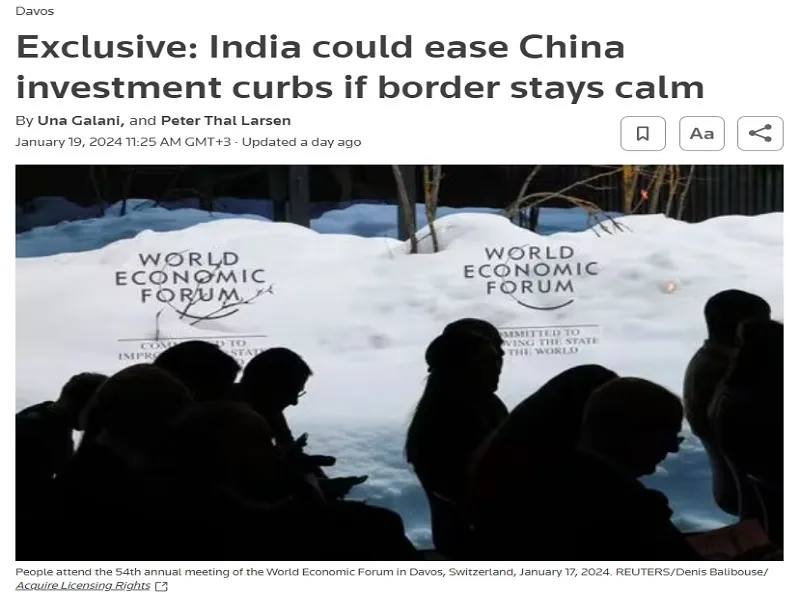So long as the military dimension of their security dilemma remains manageable, trade will continue growing to both of their benefit, so there’s nothing for members of the Alt-Media Community to worry about.
Reuters reported that senior Indian official Rajesh Kumar Singh, who’s the secretary of his country’s Department for Promotion of Industry and Internal Trade, told them on the sidelines of last week’s Davos Summit that curbs on Chinese investment could be lifted if the border remains peaceful. In his words, “You can’t have somebody nibbling at your border while at the same time having red-carpet treatment for investments from there.”
While China reacted by reminding everyone of its position that the border issue should be dealt with separately from others, the fact of the matter is that India unofficially links these two, which reflects concerns stemming from their unresolved security dilemma. In brief, this territorial dispute toxified relations after their lethal clashes in summer 2020, so it doesn’t make sense from India’s perspective to continue with business as usual until ties improve.
External Affairs Minister (EAM) Dr. Subrahmanyam Jaishankar has repeatedly said that normal relations are impossible until this issue is resolved, but it remains at an impasse due to each’s polar opposite views of how that should happen. They also claim territory that’s under one another’s control right now, such as India’s claims to what China calls Aksai Chin and China’s to the Northeastern Indian state of Arunachal Pradesh that Beijing refers to as South Tibet.
It’s unimportant which side readers support since there’s no denying that this dispute exists, their polar opposite views on how to resolve it have led to an impasse, and this has in turn prompted Indian curbs on Chinese investment due to Delhi’s threat perception of Beijing. China considers this to be an illegitimate stance while India, which hasn’t officially linked the two, has the sovereign right to practice whatever policies it wants at home in pursuit of what’s deemed to be the national interest.
The status quo will therefore remain unless one side unilaterally concedes to the other or both agree on a series of mutual compromises, neither of which appear likely anytime soon, at least according to all credible indications. That’s not to suggest that either scenario is impossible, but just that it would happen due to calculations or factors that are beyond the public’s privy. Relevant information might eventually leak if anything of the sort is being deliberated, but thus far there’s no reason to expect it.
For these reasons, Indo-Sino ties aren’t expected to meaningfully improve anytime soon, but the continued Indian curbs on Chinese investment won’t impact their trade ties all that much. After all, Reuters’ earlier cited article reported that “Despite the border problems, China is India’s largest source of imports, with bilateral trade rising 32% since tensions flared to nearly $114 billion in the fiscal year that ended in March.”
Bilateral trade could further surge if these curbs were lifted, but there’s no pressing need for India to do so unless China either unilaterally concedes on an important part of their border dispute or those two reach a series of mutual compromises for resolving their security dilemma. So long as the military dimension of their problems remains manageable, trade will continue growing to both of their benefit, so there’s nothing for members of the Alt-Media Community to worry about.

